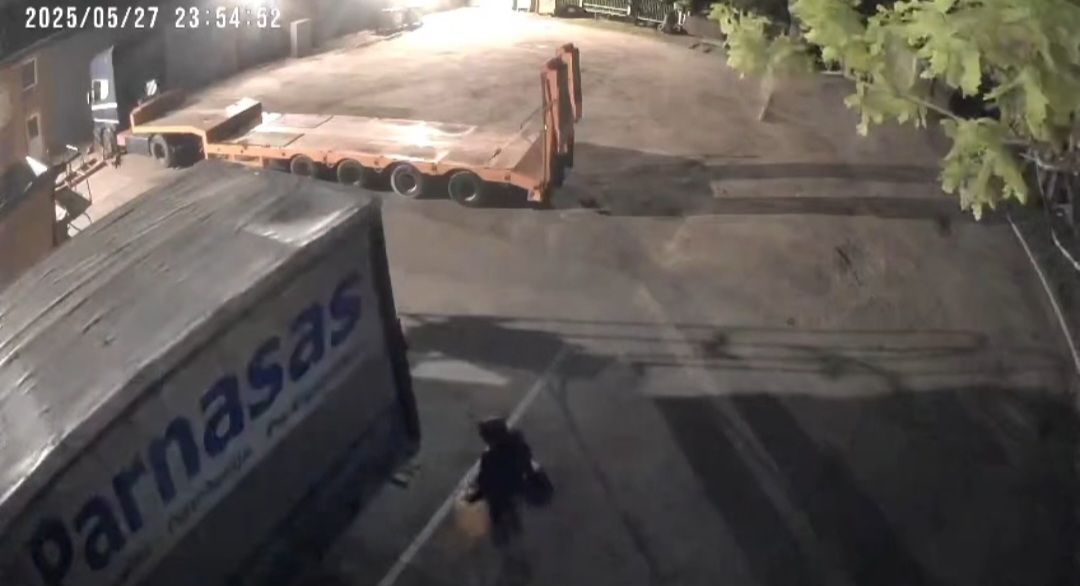An American court partially flutes Trumps tax policy. What now?
/s3/static.nrc.nl/images/gn4/data132978730-43bb23.jpg)
Another unexpected turn in the trade war, but now one that was not caused by the unpredictable Donald Trump itself. The American Court of International Trade judged Wednesday That the president of the US does not have ‘unlimited authority’ to impose tax on imports from almost all countries in the world.
An important part of the import duties that Trump has announced can no longer be imposed on the American borders. Negotiations that his government conducts with many countries will probably be delayed by this judgment because countries will wait.
The essence of the statement is that Trump himself has granted himself too great powers. In the distribution between powers in the US, the congress must decide to import taxes. The House of Representatives and the Senate can only do this if extensive research has first been done into supposed unfair commercial practices. That usually passes through for months.
Because Trump is much more in a hurry, he has passed the congress since he took on presidential decrees, with the argument that the major trade shortages of the US ensure a national state of emergency. The unprecedented high levies that Trump has announced in recent months and with which he wanted to force other countries to be strong concessions in negotiations, caused great unrest at companies, consumers and investors.
1
What exactly did the Court of International Trade decide?
The court ruled in two cases. One was brought by a group of smaller companies led by wine importer Vos from New York, the other by twelve federal states led by Oregon. The companies and the states fought the use of the International Emergency Economic Powers Act (IEEPA) from 1977, on which Trump based himself to impose the offending charges.
The congress adopted that law in 1977 to give the president the opportunity to take sanctions and Handelsembargo’s measures against countries threatening the national security of the US in exceptional circumstances. The law replaced an earlier law, which President Nixon had made too widely used during a currency crisis in 1971, according to the politicians of the time.
The Court now puts a stop to the fact that Trump recognizes the rising trade shortages of the US as a threat to national security, which could pass the congress. The judges emphasize that trade shortages cannot be characterized as ‘an unusual and extraordinary threat’ that must be to put the IEEPA in position. Moreover, the word ‘taxes’ does not appear in the legal texts as a measure that the president can take in such a situation.
For taxes against Mexico, Canada and China, to put them under pressure to prevent the transit of Fentanyl, Trump should not have been allowed to use the law either, the ruling shows. According to the judges, there is no relationship between the means of import duties and the aim of enforcing that these countries prevent trade in this addictive agent. According to the law, that is required, the judges say.
The taxes are not immediately stopped, the Court has given the civil service ten days to reverse the taxes. It is not clear whether goods that are now on the road to the US and within that period are not covered by the taxes. Also, the ruling does not provide a definitive answer as to whether companies can now reclaim levies paid from the government.
2
Are all the import duties off the job now?
No, not that, but many countries can breathe relieved. The ruling concerns all the taxes imposed on the Trump government on more than sixty countries on 2 April and that Trump suspended a week later for ninety days to give negotiations space. The basic levy of 10 percent on all goods that has been in force since that 9th of April is therefore also covered by this ruling.
The taxes on Canada and Mexico of 25 percent that Trump already imposed in February because of the fentanyl that would cross the border from these countries have now been stopped by the judges.
But the 25 percent levies that apply to steel, aluminum, cars and car parts fall out of it. They are set under what is known as section 232 of the Trade Expansion Act. He could also introduce the taxes on chips, pharmaceutical products and wood, with which Trump has already threatened. Lenses that have been in Trump since the first term and levies introduced by President Biden are not covered by the ruling.
3
How important is this court?
The Court of International Trade is a less well -known court, which has a history that goes back to 1890. This specialized federal court based in New York is the designated court for cases concerning international trade and customs.
The Court of Appeal, which is composed of three judges, came to a unanimous judgment. One of the members of this three -headed court has been nominated by Trump himself in his previous reign, one judge by Republican President Ronald Reagan in the 1980s and the third by Democrat Barack Obama.
It is not the first defeat to lead Trump to American judges for the far -reaching policy that he tries to drive through presidential orders. For example, he has already been called back by judges in the implementation of his large-scale expansion policy of immigrants and in his attempts to dismantle federal authorities and to implement mass dismissals at the federal government. They also made a line through the measure with which Trump wanted to force Harvard University to keep foreign students.
This ruling continues the struggle between the president and independent judges. « It is not up to unelected judges to determine how wise to deal with national security, » said Witte Huis spokesperson Kush Desai in a first reaction.
4
What can Trump do now?
The Trump government immediately appealed against this issue. If the president does not get his sentence at the Federal Court of Appeal, it is expected that he will bring the case for the Supreme Court. It contains a majority of conservative, partly proposed by himself.
There is also a good chance that his government will try to find a different legal basis for the taxes. For example, he could try to use section 232 of the Trade Expansion Act, which he also applied for the taxes on chips, steel and cars, but that requires extensive research into whether the import of these goods undermines national security. In first reactions, analysts and experts state that the Trump government will use them and all kinds of other possibilities to allow the taxes to continue anyway. Trump is far too crazy about this means of power.
5
What does the ruling mean for current negotiations with other countries?
Much, according to Trump’s lawyers. Before the Court, officials from the Public Prosecution Service argued that negotiations with the European Union and India would be seriously impeded. That expectation is now being divided everywhere. Many countries will first wait and see what is happening in Washington and use the ruling as a means of pressure. The deadline of 8 July, which now applies to the negotiations on taxes will be less easy to achieve. The Goldman Sachs investment bank called the ruling a setback, « but this does not necessarily mean that the final outcome for many US trading partners will change. »
What happens to the deals with the United Kingdom and China that the Trump government has already closed is not clear. « It is only the first phase of legal proceedings, » a spokesperson for the British government told international press agencies.
Tracks reacted carefully optimistic on Thursday and saw the prices rise slightly. In Europe there were mainly sectors such as the car industry and luxury products in the elevator.

/s3/static.nrc.nl/images/gn4/stripped/data133007026-70745d.jpg)
/s3/static.nrc.nl/images/gn4/stripped/data132854413-a3e368.jpg|https://images.nrc.nl/nTeCgI4ELNBl9jrvKsSa--fJ8z8=/1920x/filters:no_upscale()/s3/static.nrc.nl/images/gn4/stripped/data132854413-a3e368.jpg|https://images.nrc.nl/8OiFqQ6TBIWU24L7Itxx5j885qE=/5760x/filters:no_upscale()/s3/static.nrc.nl/images/gn4/stripped/data132854413-a3e368.jpg)
:format(jpeg):fill(f8f8f8,true)/s3/static.nrc.nl/bvhw/wp-content/blogs.dir/114/files/2019/01/krielaars-michel-online-homepage.png)



